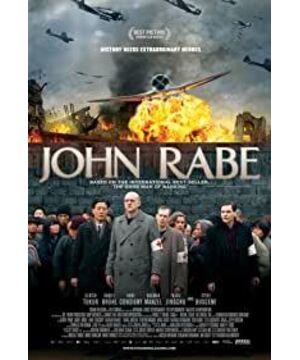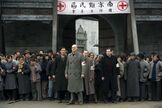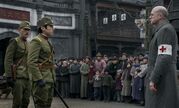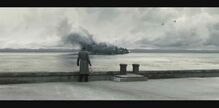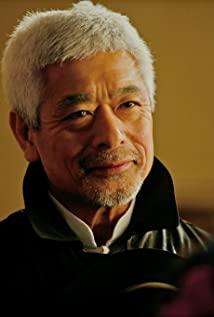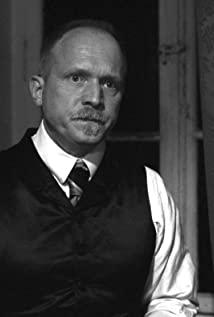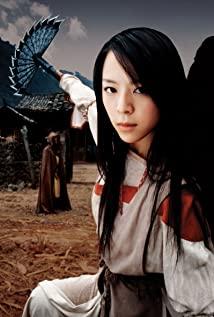I prefer to call it the "Rabe Spirit". What he expresses is not the savior of the world, not the living Bodhisattva among the 250,000 people, but the human spirit that Rabe exudes in the face of that horrific situation. Light, as the lines say: I am just that kind of person. The important thing is not who built this international safe zone, the important thing is that the people here are alive.
The people who built the safe zone with him, except for John Magee, couldn't find any information about other international friends online. His friends said that history is a selective memory, and he was lucky to have Rabe's diary handed down. History will tell you what to do and how to do it, and Rabe, as a Nazi party, chose to send his wife away to stay, because it is not his party and his country, and he has no responsibility to do it, but He still did it. He wrote to Hitler, hoping that he would stop all this, but he did not know that Hitler was killing Jews at this moment and the Nanjing Massacre was exactly the same as that of the Japanese. After returning to China, he wanted to expose the Japanese in Nanjing to the world. He was unfairly treated for his crimes. After the victory of the Anti-Fascist War, he was defined as a Nazi Party and imprisoned. However, no allies were willing to prove that he was a non-Nazi Party. He shouldn't end up dying of poverty.
The miserable life behind Rabe was not shown in the movie. It may be that the movie does not need it, or it may be that the Chinese release was cut.
Compared with Tang Shengzhi, the chief sinner of the Nanjing Massacre, who abandoned hundreds of thousands of soldiers and fled, the army without a leader was disintegrated in an instant, and the Nanjing Massacre was quickly accelerated. Such a person finally served as the vice governor of Hunan Province, and died of illness at the age of eighty years old.
Everyone knows Bethune, but very few people know about Rabe. I think when Rabe rescued the refugees in Nanjing, he did not want to be thanked by the rescued people, nor wanted to be remembered by the Chinese government or recorded in the annals of history, etc. The reason why they do this is because they are that kind of people. I am very sad about Rabe's forgetting. The film does not show war. The Nanjing Massacre is the background. The friendship that has gained recognition, the silent love, and the selflessness of the humanitarian spirit are what the film is about. When watching this film, some people will say: Western directors have mythicalized the Westerners, vilified the Chinese, and have ethnic groups. The sense of honor and disgrace is good, but it should not be blinded. After the ruling party at that time abandoned the city and fled and the army collapsed, how could prisoners of war and ordinary people show the spirit of national fearlessness and unyielding in the face of the real Japanese army? In the society at that time, being able to speak foreign languages and being able to work for foreigners was a symbol of the upper class, and it was normal for them to learn the culture of their employers, not to mention at that time, even ten years ago, young people were able to enter the world's top 500 foreign companies. Tsundere, I also used to show off the culture of American companies for working at IBM. The German director has restrained the authenticity of the time from the perspective of a third party. At that time, in that environment, only foreigners were qualified to compete with Japanese people. Say no, only foreigners, especially German Nazis, have the ability to negotiate terms with the Japanese.
The most sincere friendship in the film is the American doctor's prejudice against Rabe at the beginning, the mutual appreciation after working together, and the song that was sung for him at the end of sending Rabe away, and sincere love, in addition to his wife Dora, and Headmistress Dupres' silent love for Rabe, the most moving thing is that the headmistress has feelings for Rabe after she thought that Rabe's wife died, Rabe fainted with excitement knowing that his wife was still alive, and went to Japan with the American doctor in Rosen. When the embassy was looking for insulin, the headmistress was beside the unconscious Rabe and wanted to hold his hand. She looked up at the photo of his wife on the bedside and took it back. She didn't express her feelings from beginning to end, knowing that In the end, Rabe said goodbye and sang the ballad.
Compared with Nanjing Nanjing and Jinling Thirteen Hairpins, this movie is not only telling us history, but also telling us that our generation should be self-improvement. If you want to have the right to say no, if you want to have the ability to negotiate conditions, you can only be stronger than the other party. Confucianism should now take its essence and get rid of its dross. Confucianism was once a weak culture, and now we need a strong culture, not just humility and comity. It is also telling us that the brilliance of human nature transcends national borders and transcends races. We don’t need so much love in the prosperous world, but at least we can learn to help others without asking for anything in return or praise, doing good deeds every day and passing on the spirit of Rabe.
Finally, I hope to go to Nanjing and Berlin to go to Rabe's former residence to commemorate him, he is not my hero, he is my light.
View more about John Rabe reviews


